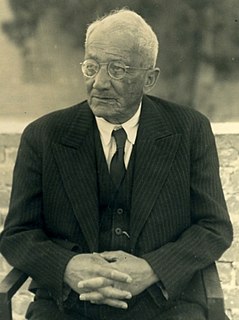A Quote by Immanuel Wallerstein
So much were employers of wage-labor unenthusiastic about proletarianization that, in addition to fostering the gender age division of labor, they also encouraged, in their employment patters and through their influence in the political arena, recognition of defined ethnic groups, seeking to link them to specific allocated roles in the labor-force, with different levels of real remuneration for their work. Ethnicity created a cultural crust which consolidated the patterns of semi-proletarian household structures.
Quote Topics
About
Addition
Age
Also
Arena
Created
Crust
Cultural
Defined
Different
Different Level
Different Levels
Division
Division Of Labor
Employers
Employment
Encouraged
Ethnic
Ethnic Groups
Ethnicity
Force
Fostering
Gender
Groups
Household
Influence
Labor
Levels
Link
Much
Patterns
Political
Real
Recognition
Remuneration
Roles
Seeking
Specific
Structures
Them
Through
Wage
Were
Which
Work
Related Quotes
Since it is to the advantage of the wage-payer to pay as little as possible, even well-paid labor will have no more than what is regarded in a particular society as the reasonable level of subsistence. The lower ranks of labor will commonly have less, and if public relief were afforded even up to the wage-level of the lowest ranks of labor, that relief would compete in the labor market; check or dry up the supply of wage-labor. It would tend to render the performance of work by the wage-earner redundant.
When the press writes scare stories about the global labor supply draining jobs from rich to poor places, the story is usually presented as a "race to the bottom" simply in terms of wages. Capitalism supposedly looks for labor wherever labor is cheapest. This story is half wrong. A kind of cultural selection is also at work, so that jobs leave high-wage countries like the United States and Germany, but migrate to low-wage economies with skilled, sometimes overqualified workers.
What about precarious labor? It's actually not the most efficient form of labor at all. They were much more efficient when they had loyalty to their workers and people were allowed to be creative and contribute - you know that what precarious labor does is that it's the best weapon ever made to depoliticize labor. They're always putting the political in front of the economic.
Labor, being itself a commodity, is measured as such by the labor time needed to produce the labor-commodity. And what is needed to produce this labor-commodity? Just enough labor time to produce the objects indispensable to the constant maintenance of labor, that is, to keep the worker alive and in a condition to propagate his race. The natural price of labor is no other than the wage minimum.
History is a great teacher. Now everyone knows that the labor movement did not diminish the strength of the nation but enlarged it. By raising the living standards of millions, labor miraculously created a market for industry and lifted the whole nation to undreamed of levels of production. Those who attack labor forget these simple truths, but history remembers them.
Most people aren't encouraged to think of their labor as very valuable. We usually think of it as the necessary thing we engage in in order to survive. We live in a world where our ability to survive is connected to our ability to draw a paycheck. But there are other ways of organizing labor and culture. For example, people who are pushing for fixed universal base income, or a welfare system that separates wage labor from the compensation required to survive. It was only when I thought of those alternatives that I was able to really understand what we mean when we say sex work is work.






































